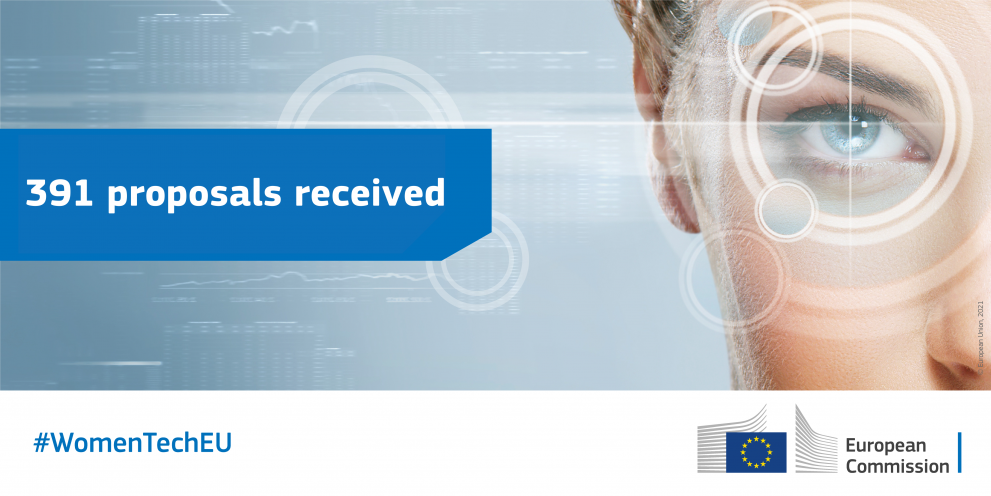
The pilot call Women TechEU, the first-class coaching and funding scheme for women entrepreneurs, showed strong demand for funding targeting women-led deep-tech start-ups. By the deadline of 10 November, the European Commission received 391 applications from 37 Member States and Horizon Europe Associated Countries.
Spanish women led start-ups submitted the highest number of proposals, followed by companies from Germany, France, and the Netherlands. The Women TechEU attracted also applicants from the Horizon Europe Associated Countries - most proposals came from Norwegian and Israeli start-ups, but applications were submitted also by companies from Morocco, Armenia and Serbia. Proposals cover a wide range of deep tech areas, of which AI, health tech and clean tech are the most common.
Women applicants must have founded or co-founded an early-stage deep-tech start-up, and have to hold a top management position (CEO, CTO, or equivalent) in the company. The company must be registered and established in an EU Member State or Associated Country for at least six months at the time of the submission.
In this first Women TechEU pilot call, 50 promising deep-tech start-ups from the EU Member States and Associated Countries will receive the funding. Beneficiaries will receive financial support with grants of EUR 75 000 and first-class coaching and mentoring through the EIC’s Women Leadership Programme. Independent experts will now evaluate the proposals. We will announce the results in the first quarter of 2022.
Background information
The opportunities created by novel technologies and disruptive innovations promise to deliver the fair and sustainable recovery Europe needs. However, if half the population is overlooked as a source of innovation and creative talent, Europe could miss out on these opportunities.
Deep tech accounts for over a quarter of Europe’s start-up ecosystem, with European deep tech companies now valued at a combined €700 billion and counting. However, women remain largely underrepresented across this industry.
Founded on innovation in engineering and advances in science, deep tech start-ups tend to have longer R&D cycles, and often take more time and capital to build than other start-ups. Most could fail in their first years if they do not receive the right support and investment early on. Women in deep tech often face the additional hurdle of gender bias and stereotypes, particularly prevalent in sectors like technology.
Achieving a Union of Equality that promotes gender equality in all spheres of life, is one of the major priorities of the European Commission. The Commission is working with Member States and Associated Countries to promote women in leadership and close the gender gap in technology and innovation.
Contact us
For more information, please contact us at EISMEA-WOMENTECHEU ec [dot] europa [dot] eu (EISMEA-WOMENTECHEU[at]ec[dot]europa[dot]eu).
ec [dot] europa [dot] eu (EISMEA-WOMENTECHEU[at]ec[dot]europa[dot]eu).
Sources
Details
- Publication date
- 11 November 2021
- Author
- European Innovation Council and SMEs Executive Agency
